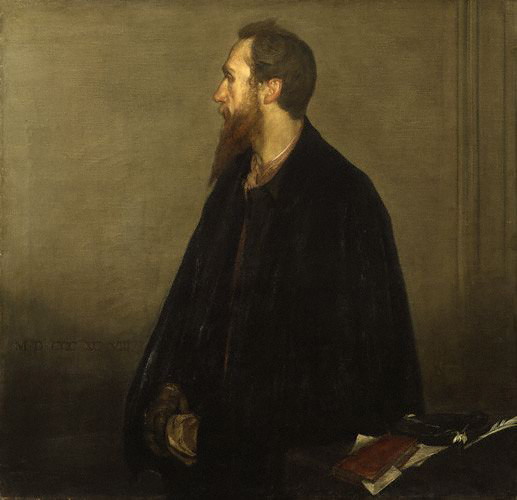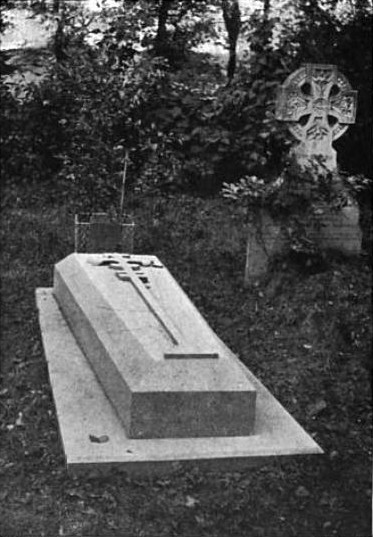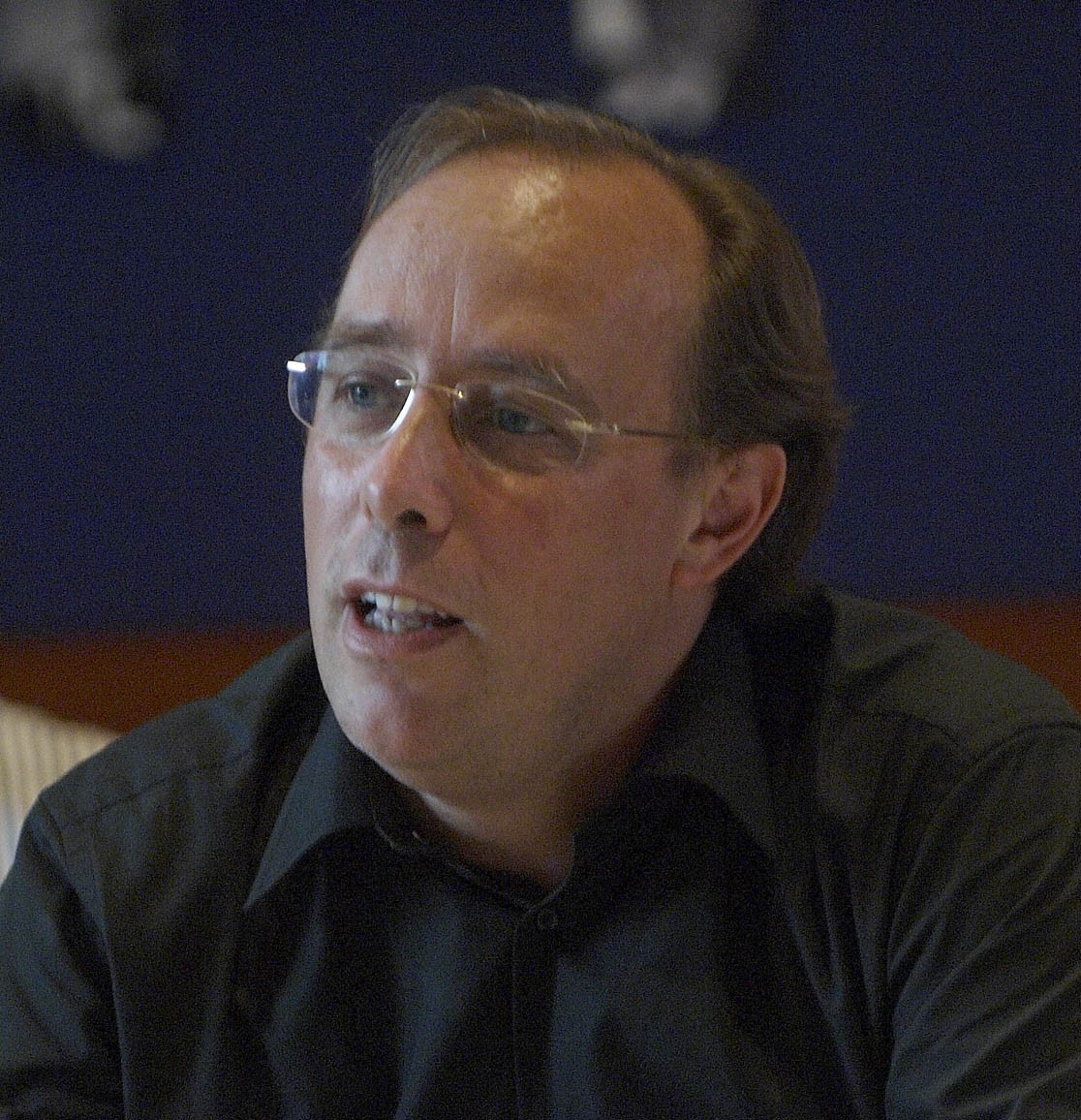|
Earth Inferno
''Earth Inferno'' is the first book by the English artist and magician Austin Osman Spare, written when he was 18. Artist's book Conceived as an anti-establishment reaction to the publicity surrounding his inclusion in the Royal Academy summer show in 1904, the book was developed over the remainder of that year and was eventually published in 1905. Printed by the Co-Operative Printing Society, the book was designed by the artist and self-published in an edition of 265 numbered and signed copies. Clive Harper and Mandrake Press, 2007 Influences and design Influenced heavily by 's '' |
Austin Osman Spare
Austin Osman Spare (30 December 1886 – 15 May 1956) was an English artist and occultist who worked as both a draughtsman and a painter. Influenced by symbolism and art nouveau his art was known for its clear use of line, and its depiction of monstrous and sexual imagery. In an occult capacity, he developed magical techniques including automatic writing, automatic drawing and sigilization based on his theories of the relationship between the conscious and unconscious self. Born into a working-class family in Snow Hill in London, Spare grew up in Smithfield and then Kennington, taking an early interest in art. Gaining a scholarship to study at the Royal College of Art in South Kensington, he trained as a draughtsman, while also taking a personal interest in Theosophy and Occultism, becoming briefly involved with Aleister Crowley and his A∴A∴. Developing his own personal occult philosophy, he wrote a series of occult grimoires, namely '' Earth Inferno'' (1905), '' The ... [...More Info...] [...Related Items...] OR: [Wikipedia] [Google] [Baidu] |
Occult
The occult, in the broadest sense, is a category of esoteric supernatural beliefs and practices which generally fall outside the scope of religion and science, encompassing phenomena involving otherworldly agency, such as magic and mysticism and their varied spells. It can also refer to supernatural ideas like extra-sensory perception and parapsychology. The term ''occult sciences'' was used in 16th-century Europe to refer to astrology, alchemy, and natural magic. The term ''occultism'' emerged in 19th-century France, amongst figures such as Antoine Court de Gébelin. It came to be associated with various French esoteric groups connected to Éliphas Lévi and Papus, and in 1875 was introduced into the English language by the esotericist Helena Blavatsky. Throughout the 20th century, the term was used idiosyncratically by a range of different authors, but by the 21st century was commonly employed – including by academic scholars of esotericism – to refer to a range ... [...More Info...] [...Related Items...] OR: [Wikipedia] [Google] [Baidu] |
A Book Of Satyrs
A, or a, is the first letter and the first vowel of the Latin alphabet, used in the modern English alphabet, the alphabets of other western European languages and others worldwide. Its name in English is ''a'' (pronounced ), plural ''aes''. It is similar in shape to the Ancient Greek letter alpha, from which it derives. The uppercase version consists of the two slanting sides of a triangle, crossed in the middle by a horizontal bar. The lowercase version can be written in two forms: the double-storey a and single-storey ɑ. The latter is commonly used in handwriting and fonts based on it, especially fonts intended to be read by children, and is also found in italic type. In English grammar, " a", and its variant " an", are indefinite articles. History The earliest certain ancestor of "A" is aleph (also written 'aleph), the first letter of the Phoenician alphabet, which consisted entirely of consonants (for that reason, it is also called an abjad to distinguish it f ... [...More Info...] [...Related Items...] OR: [Wikipedia] [Google] [Baidu] |
Magic (paranormal)
Magic, sometimes spelled magick, is an ancient praxis rooted in sacred rituals, spiritual divinations, and/or cultural lineage—with an intention to invoke, manipulate, or otherwise manifest supernatural forces, beings, or entities in the natural, incarnate world. It is a categorical yet often ambiguous term which has been used to refer to a wide variety of beliefs and practices, frequently considered separate from both religion and science. Although connotations have varied from positive to negative at times throughout history, magic continues to have an important religious and medicinal role in many cultures today. Within Western culture, magic has been linked to ideas of the Other, foreignness, and primitivism; indicating that it is "a powerful marker of cultural difference" and likewise, a non-modern phenomenon. During the late nineteenth and early twentieth century, Western intellectuals perceived the practice of magic to be a sign of a primitive mentality and also co ... [...More Info...] [...Related Items...] OR: [Wikipedia] [Google] [Baidu] |
Anti-establishment
An anti-establishment view or belief is one which stands in opposition to the conventional social, political, and economic principles of a society. The term was first used in the modern sense in 1958, by the British magazine ''New Statesman'' to refer to its political and social agenda. Antiestablishmentarianism (or anti-establishmentarianism) is an expression for such a political philosophy. By country Argentina The La Libertad Avanza party has an ideology revolving anti-establishment. Australia Pauline Hanson's One Nation Party and the United Australia Party (formerly Palmer United) have both been referred to as anti-establishment parties. Canada The People's Party of Canada is seen as anti-establishment political party. Bernier was accused by prominent Conservative politicians such as former prime ministers Stephen Harper and Brian Mulroney of trying to divide the political right. Bernier responded to Power and Politics that he wanted to focus on the disaf ... [...More Info...] [...Related Items...] OR: [Wikipedia] [Google] [Baidu] |
Dante
Dante Alighieri (; – 14 September 1321), probably baptized Durante di Alighiero degli Alighieri and often referred to as Dante (, ), was an Italian people, Italian Italian poetry, poet, writer and philosopher. His ''Divine Comedy'', originally called (modern Italian: ''Commedia'') and later christened by Giovanni Boccaccio, is widely considered one of the most important poems of the Middle Ages and the greatest literary work in the Italian language. Dante is known for establishing the use of the vernacular in literature at a time when most poetry was written in Latin, which was accessible only to the most educated readers. His ''De vulgari eloquentia'' (''On Eloquence in the Vernacular'') was one of the first scholarly defenses of the vernacular. His use of the Florentine dialect for works such as ''La Vita Nuova, The New Life'' (1295) and ''Divine Comedy'' helped establish the modern-day standardized Italian language. His work set a precedent that important Italian write ... [...More Info...] [...Related Items...] OR: [Wikipedia] [Google] [Baidu] |
The Divine Comedy
The ''Divine Comedy'' ( it, Divina Commedia ) is an Italian narrative poem by Dante Alighieri, begun 1308 and completed in around 1321, shortly before the author's death. It is widely considered the pre-eminent work in Italian literature and one of the greatest works of world literature. The poem's imaginative vision of the afterlife is representative of the medieval worldview as it existed in the Western Church by the 14th century. It helped establish the Tuscan language, in which it is written, as the standardized Italian language. It is divided into three parts: '' Inferno'', '' Purgatorio'', and '' Paradiso''. The narrative takes as its literal subject the state of the soul after death and presents an image of divine justice meted out as due punishment or reward, and describes Dante's travels through Hell, Purgatory, and Heaven. Allegorically, the poem represents the soul's journey towards God, beginning with the recognition and rejection of sin (''Inferno''), follo ... [...More Info...] [...Related Items...] OR: [Wikipedia] [Google] [Baidu] |
Charles Ricketts
Charles de Sousy Ricketts (2 October 1866 – 7 October 1931) was a British artist, illustrator, author and printer, known for his work as a book designer and typographer and for his costume and scenery designs for plays and operas. Ricketts was born in Geneva to an English father and a French mother and brought up mainly in France. In 1882 he began studying wood engraving in London, where he met a fellow student, Charles Shannon, who became his lifelong companion and artistic collaborator. Ricketts first made his mark in book production, first as an illustrator, and then as the founder and driving force of the Vale Press (1896–1904), one of the leading private presses of the day, for which he designed the type and illustrations. A disastrous fire at the printers led to the closure of the press, and Ricketts turned increasingly to painting and sculpture over the following two decades. In 1906 he also began a career as a theatre designer, first for works by his friend Oscar ... [...More Info...] [...Related Items...] OR: [Wikipedia] [Google] [Baidu] |
Edward FitzGerald (poet)
Edward FitzGerald or Fitzgerald (31 March 180914 June 1883) was an English poet and writer. His most famous poem is the first and best-known English translation of ''The Rubaiyat of Omar Khayyam'', which has kept its reputation and popularity since the 1860s. Life Edward FitzGerald was born Edward Purcell at Bredfield House in Bredfield, some two miles north of Woodbridge, Suffolk, England, in 1809. In 1818, his father, John Purcell, assumed the name and arms of his wife's family, the FitzGeralds. His elder brother John used the surname Purcell-Fitzgerald from 1858. The change of family name occurred shortly after FitzGerald's mother inherited a second fortune. She had previously inherited over half a million pounds from an aunt, but in 1818, her father died and left her considerably more than that. The FitzGeralds were one of the wealthiest families in England. Edward FitzGerald later commented that all of his relatives were mad; further, that he was insane as well, but wa ... [...More Info...] [...Related Items...] OR: [Wikipedia] [Google] [Baidu] |
Rubaiyat Of Omar Khayyam
''Rubáiyát of Omar Khayyám'' is the title that Edward FitzGerald gave to his 1859 translation from Persian to English of a selection of quatrains (') attributed to Omar Khayyam (1048–1131), dubbed "the Astronomer-Poet of Persia". Although commercially unsuccessful at first, FitzGerald's work was popularised from 1861 onward by Whitley Stokes, and the work came to be greatly admired by the Pre-Raphaelites in England. FitzGerald had a third edition printed in 1872, which increased interest in the work in the United States. By the 1880s, the book was extremely popular throughout the English-speaking world, to the extent that numerous "Omar Khayyam clubs" were formed and there was a " cult of the Rubaiyat". FitzGerald's work has been published in several hundred editions and has inspired similar translation efforts in English, Hindi and in many other languages. Sources The authenticity of the poetry attributed to Omar Khayyam is highly uncertain. Khayyam was famous duri ... [...More Info...] [...Related Items...] OR: [Wikipedia] [Google] [Baidu] |
1905 Books
Nineteen or 19 may refer to: * 19 (number), the natural number following 18 and preceding 20 * one of the years 19 BC, AD 19, 1919, 2019 Films * ''19'' (film), a 2001 Japanese film * ''Nineteen'' (film), a 1987 science fiction film Music * 19 (band), a Japanese pop music duo Albums * ''19'' (Adele album), 2008 * ''19'', a 2003 album by Alsou * ''19'', a 2006 album by Evan Yo * ''19'', a 2018 album by MHD * ''19'', one half of the double album ''63/19'' by Kool A.D. * ''Number Nineteen'', a 1971 album by American jazz pianist Mal Waldron * ''XIX'' (EP), a 2019 EP by 1the9 Songs * "19" (song), a 1985 song by British musician Paul Hardcastle. * "Nineteen", a song by Bad4Good from the 1992 album '' Refugee'' * "Nineteen", a song by Karma to Burn from the 2001 album ''Almost Heathen''. * "Nineteen" (song), a 2007 song by American singer Billy Ray Cyrus. * "Nineteen", a song by Tegan and Sara from the 2007 album '' The Con''. * "XIX" (song), a 2014 song by Slipknot. ... [...More Info...] [...Related Items...] OR: [Wikipedia] [Google] [Baidu] |
Occult Books
The occult, in the broadest sense, is a category of esoteric supernatural beliefs and practices which generally fall outside the scope of religion and science, encompassing phenomena involving otherworldly agency, such as magic and mysticism and their varied spells. It can also refer to supernatural ideas like extra-sensory perception and parapsychology. The term ''occult sciences'' was used in 16th-century Europe to refer to astrology, alchemy, and natural magic. The term ''occultism'' emerged in 19th-century France, amongst figures such as Antoine Court de Gébelin. It came to be associated with various French esoteric groups connected to Éliphas Lévi and Papus, and in 1875 was introduced into the English language by the esotericist Helena Blavatsky. Throughout the 20th century, the term was used idiosyncratically by a range of different authors, but by the 21st century was commonly employed – including by academic scholars of esotericism – to refer to a range o ... [...More Info...] [...Related Items...] OR: [Wikipedia] [Google] [Baidu] |



.jpg)




